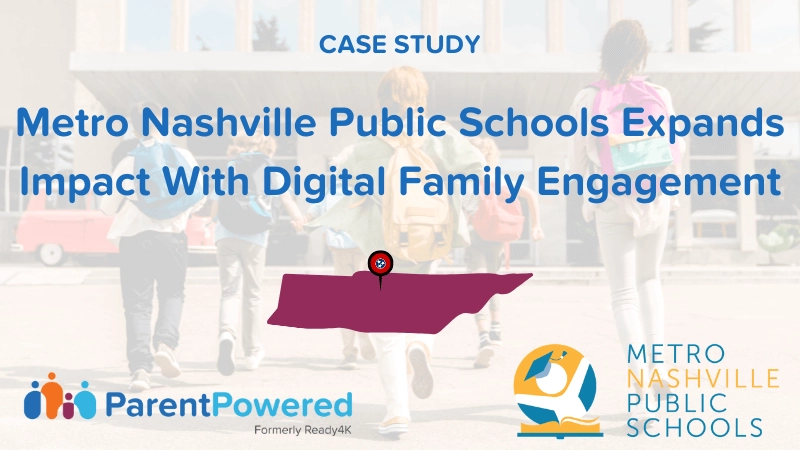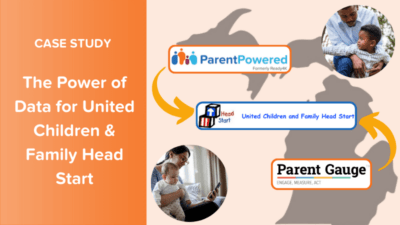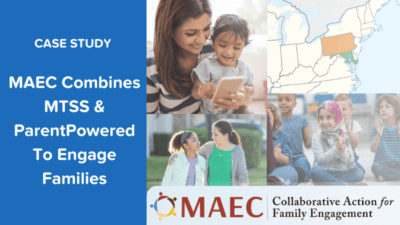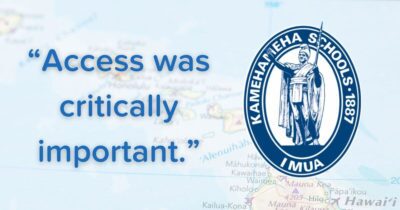By Maren Madalyn, contributing writer
The Challenge
In the heart of Tennessee’s capital, a small but mighty Family and Community Partnerships (FPC) at Metro Nashville Public Schools (MNPS) strategizes how to empower both educators and families to cultivate student learning.
This is no small feat.
MNPS serves over 80,000 students enrolled at 162 school campuses spread across more than 500 square miles. Within this community, incredible diversity thrives. Families arrive from at least 145 countries of origin and represent over a hundred different home languages.
As a lean team of just five members, the FPC team is tasked with creatively applying their resources towards family engagement initiatives that meet the vast array of family needs in this multifaceted community.
Such a responsibility could seem daunting to any educator. But FPC is determined to bring their mission to life. They envision a future where families and educators collaborate as trusted partners to create the learning conditions that enable every child to thrive — without overwhelming them.
The Solution
The chaotic events of 2020 radically shifted how the district supported their students and families, creating a new slew of challenges for the FPC team.
But with these challenges came an incredible opportunity. To continue nurturing early literacy during school shutdowns, the Governor’s Early Literacy Foundation (GELF) collaborated with the Tennessee Department of Education to offer innovative solutions to nurture family-school collaborations.
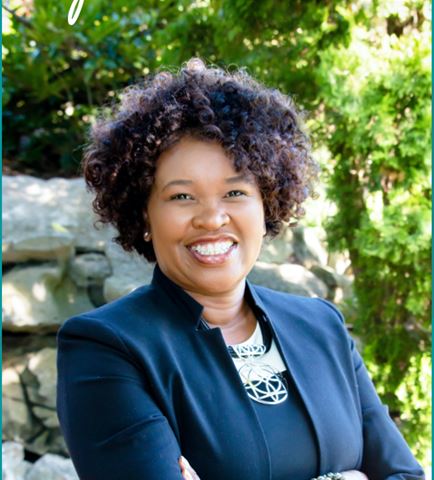
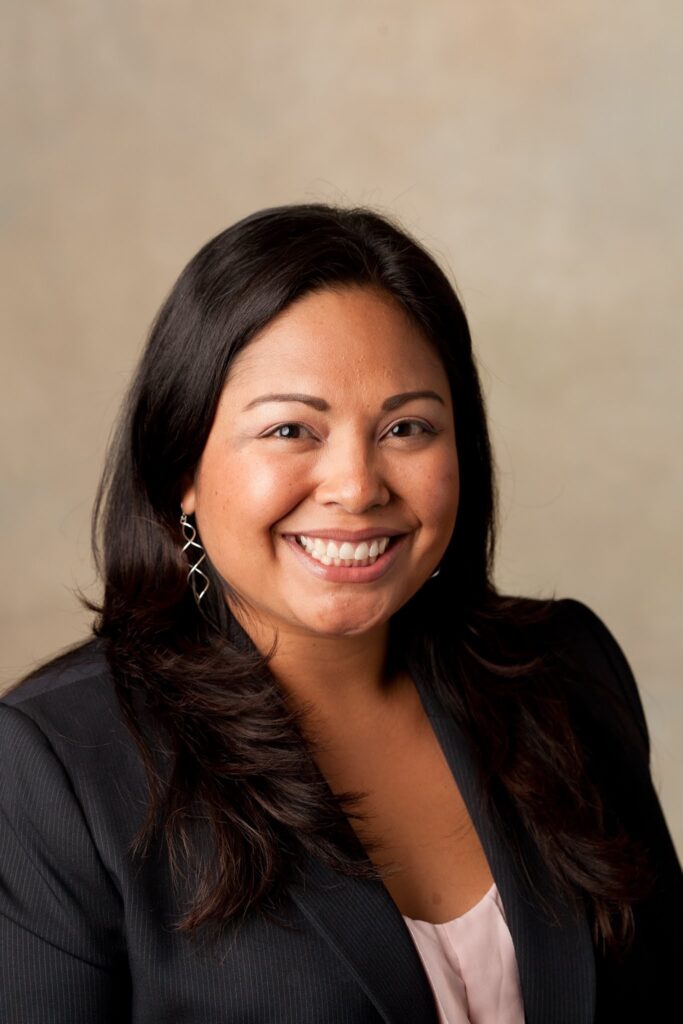
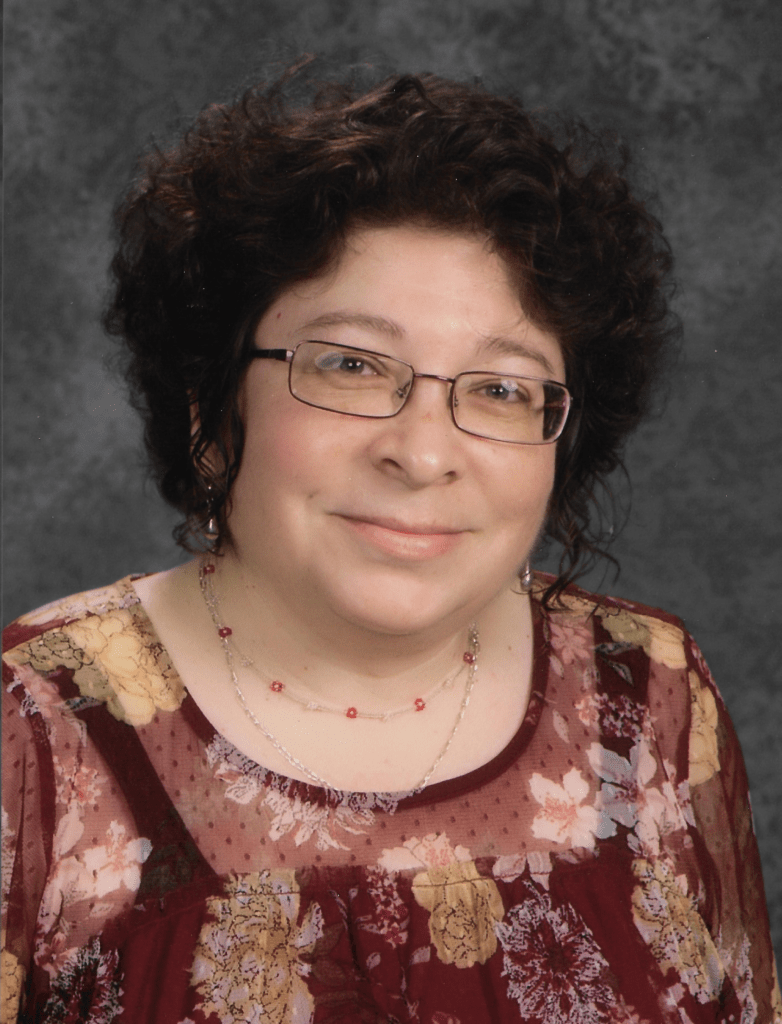
Among these solutions was ParentPowered Trauma-Informed, an evidence-based family engagement program designed to support whole child learning by scaffolding successful home-school partnerships.
MNPS worked with GELF to launch ParentPowered in January 2021, starting with schools serving families of young children in PreK. Four years later, the program supports the families of over 70,000 students in PreK through grade 8 across the district.
ParentPowered recently sat down with Dr. Yolanda Jackson, Family Engagement Coordinator, Maria Heerdt, Family Engagement Specialist, and Mariechelle Bonifacio, Community Outreach Coordinator for Early Learning. Through our interview, we learned just how they successfully expanded family supports like ParentPowered to so many caregivers within available resources and in harmony with the district’s strategic priorities.
Broadening capacity: An accessible family solution that grows alongside children
When Bonifacio first learned about GELF’s plans to offer ParentPowered Trauma-Informed across the state, she knew that their families simply had to receive such support. She saw the potential to maximize the district’s limited resources to reach and prime families for greater collaboration with early childhood educators serving their children.
In particular, the electronic format of information shared with families was ideal for expanding reach:
“Families have asked us in the past: ‘What can I do to support early learning at home?’ [ParentPowered] is providing us that opportunity to give families the information they need in the format that they want. . . This is a reputable, evidence-based service we provide to our families.”
Mariechelle Bonifacio, Community Outreach Coordinator, MNPS Early Learning
ParentPowered delivers learning activities and tips to parents via text message, one of the most equitable means by which to connect with families. But these messages go a step further. Each activity leans on evidence-based strategies that require no additional time, resources, or knowledge — making them simple for families to do with their children.
The FPC team pointed out that ParentPowered’s ease-of-use makes the program stand out among other digital family engagement solutions.
“It can be overwhelming [for families],” Heerdt shared, explaining that many families may see in-person engagement as the best (or even the only) way to support their children’s education. The team recognizes that such participation is helpful, but certainly not the only way families impact learning.
“[Educators] have to be realistic. . . Families need to know that we value them, that they are already doing the best for their children. We need to give families the guidance they need without demanding of them things that are unreasonable or overwhelming. . . [ParentPowered] is what research is telling us is working for families.”
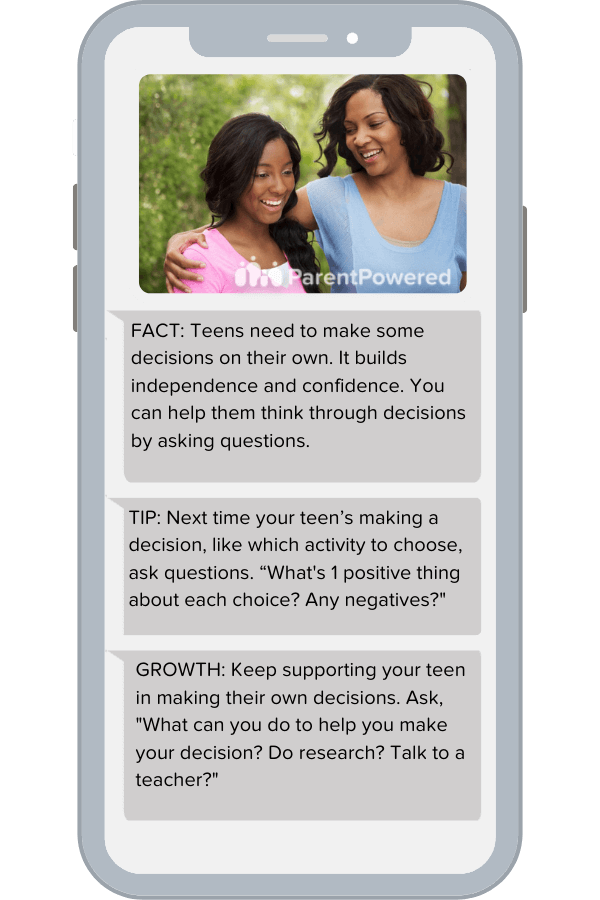
Widening impact: Uplifting middle school families’ engagement
By the time the district expanded ParentPowered to elementary school families, Heerdt was already aware of and impressed by the program through various webinars and other learning resources shared by the organization.
She was thrilled to discover that MNPS had engaged with the program in the young grade levels — but became even more excited when she learned that ParentPowered served families of adolescents, too. “It was the [natural] next step to include our middle school families,” Heerdt reflected.
“[My favorite strategy is] before I reach out to the school, I ask my daughter questions first. Ask your teen a quick question about friends. All of [the ParentPowered text messages] are very helpful to me, thanks. Keep up the good work together. We can save a child [from] bullying.”
ParentPowered Caregiver in MNPS (Middle School)
A student’s transition into middle school is famously a time when caregivers often feel their increasingly independent preteens may not want or need their support with learning. In parallel, educators in middle school can struggle with adapting engagement strategies to support such a large number of families and an even larger roster of students.
Heerdt pointed to time as a common limiting factor, not only for families and educators but also for the district team itself. Though the FPC team provides professional development opportunities to teachers about effective strategies for connecting with families, they cannot always be present with educators to support them directly.
Here again, the team looked to ParentPowered to help both sides navigate this challenge: “One of the things that attracted us to ParentPowered is that we can build these skills [like talking to teachers] directly with families through this platform,” Heerdt shared. “[Parents] receive tips and strategies they need to support their students’ education.”
Heerdt herself signed up to receive ParentPowered texts, eager to be in the know about what messages families received each week. She was quickly impressed by the age-appropriate strategies offered to parents of adolescents that help them move from being “captains” to “copilots,” supporting their students’ independence in learning.
“We know that family engagement changes as students grow,” Heerdt explained. “What families know and understand about engaging in students’ education in the early years is very different from the needs that children and educators have for support from families in higher grades.”
Bonus benefits: Spanish-speaking family engagement & community supports
The ParentPowered expansions across MNPS in multiple grade levels revealed additional benefits to the FPC team.

First, they were pleasantly surprised to see high usage among Spanish-speaking families in both middle and elementary school grade levels. Opt-out rates for the program remain low within this community — and across the district overall — indicating caregivers’ ongoing desire to receive these activities directly via their phones.
Second, the FPC team set up the Community Support Stream (CSS) as part of their implementation. The CSS allows educators to curate information about local, regional, and national resources that are delivered via text message to families in parallel with ParentPowered activities.
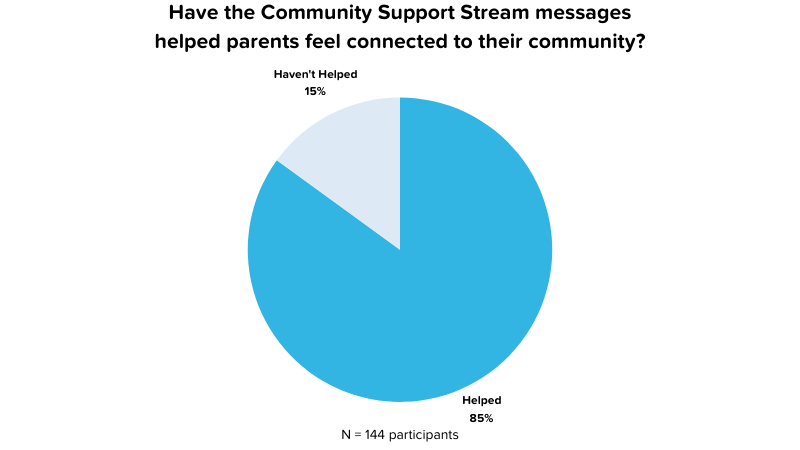
For Dr. Jackson, these community partnerships are absolutely essential for the district to make meaningful progress towards their strategic goals.
“In a district as large and diverse as ours, it is very important to lean on the partnerships and organizations we have in our city for additional resources,” she emphasized. “[Our family engagement team] creates opportunities where we can leverage these partnerships. . . CSS falls right in line with our strategy to support families by giving them resources in the community.”
By collaborating with local organizations, the district can extend its reach and impact among those families who may have more unique or specialized needs.
Heerdt too expressed appreciation for ParentPowered’s thoughtfulness with developing this tool.
“Being able to connect [our families] with the services that our community offers to them to provide for other needs. . . speaks of how much ParentPowered focuses on and serves the whole child, including families as part of the support needed for students.”
Maria Heerdt, Family Engagement Specialist, MNPS
During the 2023-2024 school year, MNPS middle school families received messages about over 48 community-based resources from 20 partnerships with the district. Above all, both English and Spanish-speaking families clicked on links for services related to food security and support for young children from the Nashville Diaper Connection, Second Harvest of Middle Tennessee, and the Tennessee Department of Human Services.
Improving learning: ParentPowered helps MNPS drive strategic priorities in academics, attendance, and behavior
Even beyond connecting families with community resources, Dr. Jackson sees the direct link between ParentPowered and her district’s strategic Focus Areas to improve learning outcomes. To ensure “every student is known” to MNPS educators, the district identified four key focuses:
- Attendance
- Literacy
- Numeracy
- Behavior and social-emotional learning
ParentPowered messages align with the Tennessee academic standards, which is a huge benefit for driving academic aspects of the district’s core strategic focus areas. Research also underscores the value of family engagement to bolster outcomes like attendance and social-emotional development.
But Dr. Jackson pointed out that family engagement programming shouldn’t be isolated to just one team. Every department in MNPS shares the responsibility of cultivating positive growth in all of these focus areas. Though family engagement can be a key part of every strategy to achieve this vision, it isn’t always clear for adjacent departments how to make that happen.
That’s where the FPC team comes in.
“I like to think of family engagement as the central hub of a wheel. . . the spokes are all of the departments and teams at MNPS, who collaborate to support wraparound services [for families] that move student success forward.”
Dr. Yolanda Jackson, Family Engagement Coordinator, MNPS
To this end, the team intentionally creates spaces to collaborate with adjacent district teams, such as Student Services. The more deeply they understand the goals of each department, the more effectively they can mold family engagement strategies to support those outcomes — merging department goals with the needs of students’ families.
“It is not that [adjacent departments] don’t believe that the family is the first and best teacher,” Dr. Jackson explained, “but within their scope of work, it is hard to reach them or else it feels outside of what they are tasked to focus on. . . [Our team] is that intentional layer and foundation, so that families can build trusting relationships with other entities across the district beyond teachers.”
The power of the right data at the right time
Data plays a crucial role in connecting family engagement supports to cross-departmental goals. The FPC team relies on a number of inputs to guide decision making, including:
- Parent and caregiver feedback, sourced through ParentPowered and other strategies
- Student attendance and behavior data
- Achievement data across core academic subjects
In partnership with other departments, Dr. Jackson isolates bright spots to celebrate, opportunities to improve gaps, and newly emergent challenges. These analyses feed into professional development “nuggets” that the FPC team creates and distributes to teachers. They also utilize family feedback to guide plans for family-focused trainings and workshops each year.
Last, the insights collected help the team identify specific schools that may need greater support with family and community engagement implementations. This “tiered” approach to school support allows Dr. Jackson to best allocate the team’s time, energy, and efforts to key pockets across the district.
“Son un buen consejo para ayudar a mi hija a ser más independiente (They are good advice to help my daughter be more independent)”
ParentPowered Caregiver in MNPS (Middle School)
Dr. Jackson loves that the FPC team can tap into the many high-quality educator and family resources available in the ParentPowered platform. “If you go through the resource folder that ParentPowered shares with us, the content is amazing,” she praised. “As we lean on the data we have, we know we can use ParentPowered [guides] to support the work we want to do with families.”
She cited school enrollments and attendance as one example of a priority during back-to-school season. ParentPowered resources such as Get Ready For Great Attendance, Welcome To School in the U.S., and Insider’s Guide to Great Public Schools can all support families as they prepare for their child’s return to school.
An expansive future for MNPS family-school partnerships
The FPC team is thrilled about their bright future of family and community engagement in the upcoming school year.
Of course, the team will continue to expand family enrollments in ParentPowered. In particular, Bonifacio is eager to bring the program to families with infants and toddlers, while Dr. Jackson and Heerdt are looking at family supports at the high school level.
Additionally, they are revitalizing their Family & Community University to make more caregiver resources available via their learning management system. Whole-family supports will be organized around four pillars:
- Family and community engagement
- Health and wellness
- Adult and social services
- College and career readiness
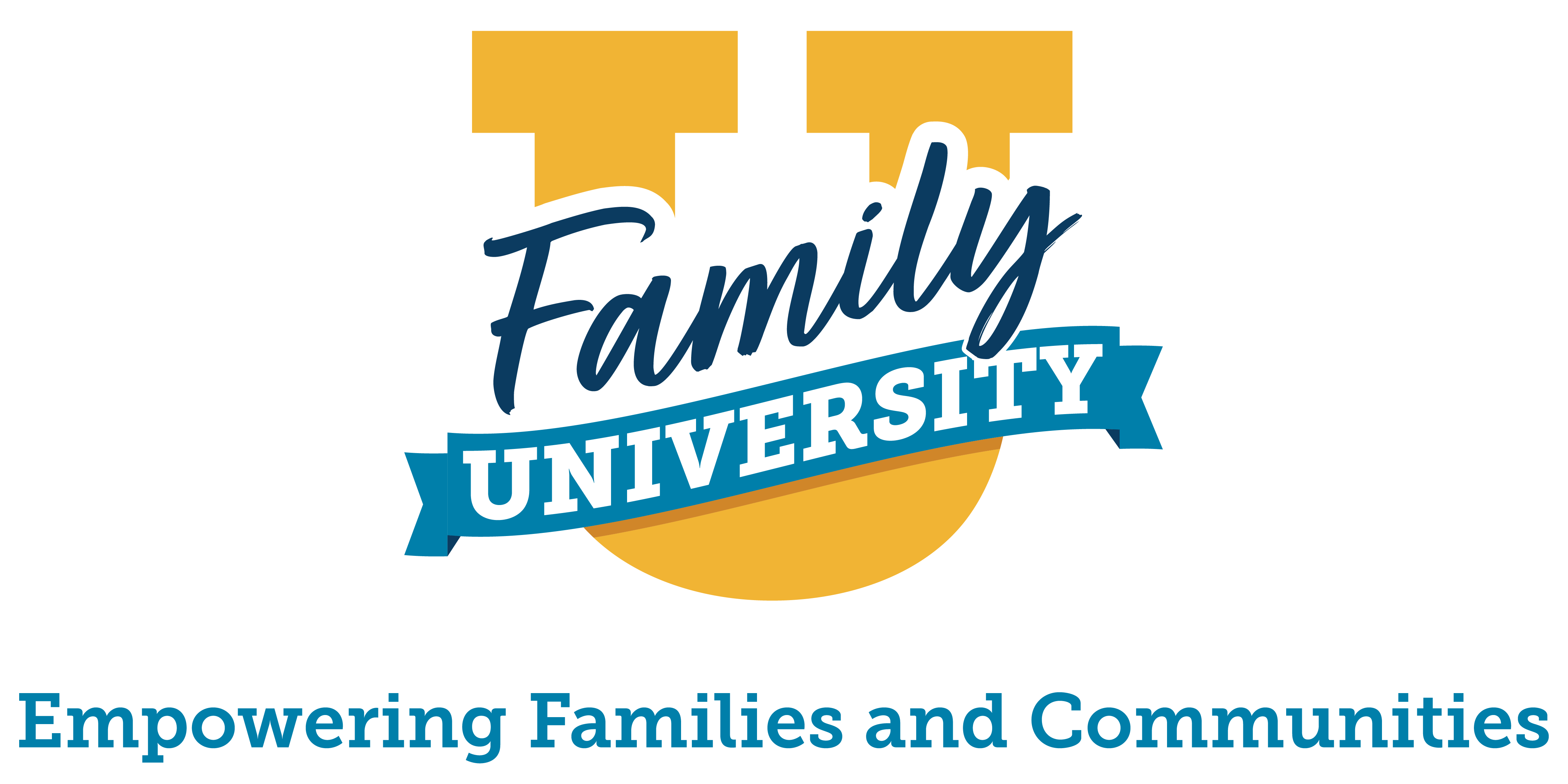
Finally, the FPC team will deepen educators’ awareness of and engagement with the myriad of insights available in ParentPowered. In the fall, Dr. Jackson will work with school principals to share about the program, highlight its impact on MNPS families, and identify a designated champion to continue nurturing each school’s ParentPowered implementation.
And the team knows that ParentPowered will be right there with them, all the way.
“It is truly a partnership when you have a team [like ParentPowered] on your side to empower you and help you understand your data!” exclaimed Bonifacio.
Dr. Jackson could not agree more: “What really makes this program great is the support and services provided by ParentPowered. . . the webinars they share to support educators with family engagement. . . it is made so easy with the team and the support they provide.”
To learn more about ParentPowered’s family engagement programs, join an upcoming info session or take a self-paced tour of our Trauma-Informed curriculum.
About the author
Maren Madalyn has worked at the intersection of K12 education and technology for over a decade, serving in roles ranging from counseling to customer success to product management. She blends this expertise with fluid writing and strategic problem-solving to help education organizations create thoughtful long-form content that empowers educators.

